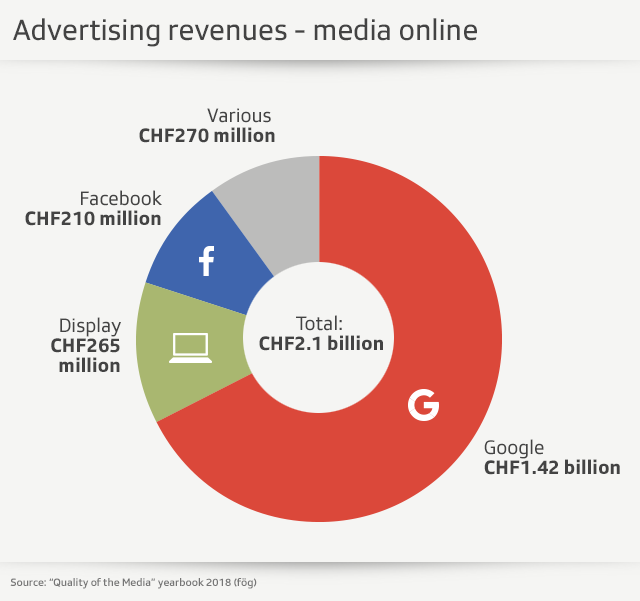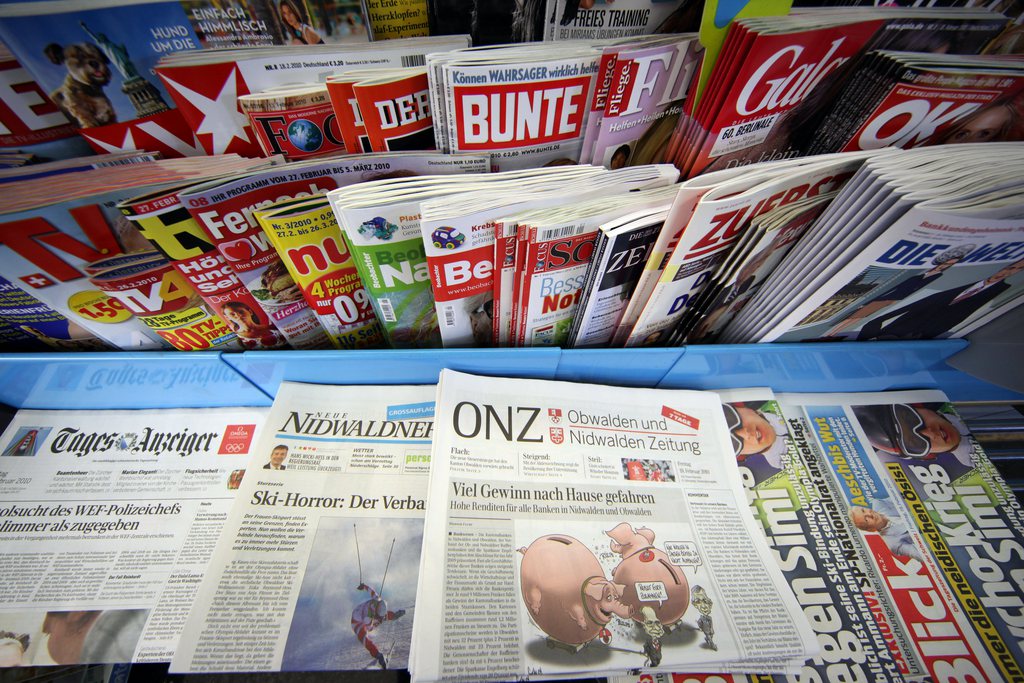Swiss media stuck in negative spiral

The Swiss media landscape remains of high quality but an “alarmingly high” concentration is a real problem for democracy, according to an annual analysis. What’s more, advertising in the online media is being decimated by Google and Facebook and jobs in journalism are disappearing.
There are advantages of being a small country with considerable linguistic variety and regional differences. However, this poses challenges when it comes to the media, says the Yearbook Quality of the MediaExternal link, published on Monday by the fög research institute at the University of Zurich.
The findings for 2018 show that international tech platforms such as Google and Facebook dominate the online advertising market. As a result, the Swiss media are concentrated on just a few companies.
In the old days, newspapers lived from adverts, which they printed for good money. Over the past decade, however, this income has practically halved. Today, online advertising rules the Swiss advertising market.
Google is the main beneficiary of this. In 2017, the search engine giant pocketed CHF2.1 billion ($2.1 billion) – two-thirds of all online advertising in Switzerland. In comparison, the share of display advertising – that is, the advertising that appears directly on media platforms and is thus their direct source of income – is small.

In other words, Swiss media companies make content which is found via Google. Advertisers do business directly with the search engine. So: expenses for the media companies, income for Google. In 2017, Google earned more in Switzerland than the entire press combined.
One consequence of this is that newsrooms are having to tighten their belts. There has been a significant brain drain in Swiss journalism. Between 2011 and 2016, some 3,000 jobs disappeared. Journalists either went freelance or went into PR or lobby work.
Further job cuts can be expected in the years to come, including at the Swiss Broadcasting Corporation, swissinfo.ch’s parent company, and the Swiss News Agency. From a democratic point of view this is a problematic development, say the authors of the Yearbook Quality of the Media.
Then there’s the media concentration, which the study says is “alarmingly high”. Large media companies are buying more and more local media in order to get a piece of the much-contested advertising pie.

In addition, to save money, media companies are merging newsrooms and publishing the same articles in different media. Last year, for example, more than half the articles on Swiss politics appeared in more than one publication.
The study authors said this harmed editorial competition and reduced the diversity of opinions in the media. This was particularly critical concerning political issues such as public votes, they said.
swissinfo.ch is part of the Swiss Broadcasting Corporation (SBC). swissinfo.ch is funded half by the SBC and half by the federal government.

More
Swiss public broadcaster bucks downward media trend
(Translated from German by Thomas Stephens)

In compliance with the JTI standards
More: SWI swissinfo.ch certified by the Journalism Trust Initiative













You can find an overview of ongoing debates with our journalists here . Please join us!
If you want to start a conversation about a topic raised in this article or want to report factual errors, email us at english@swissinfo.ch.